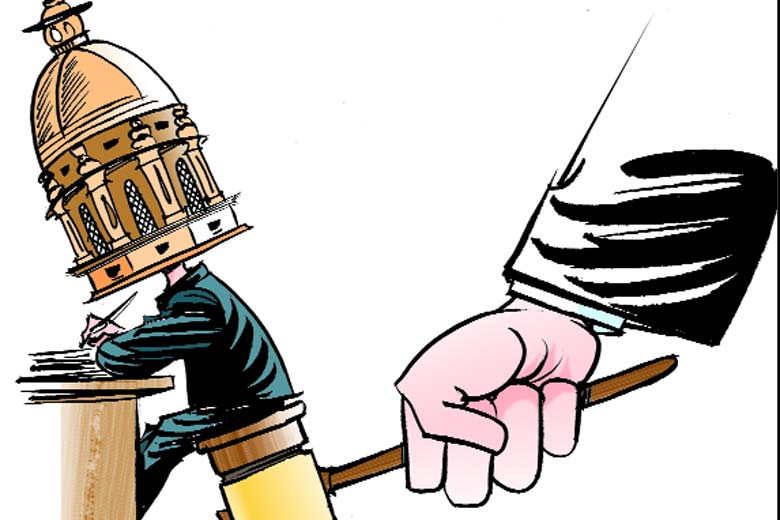Conveying the V.M. Tarkunde Memorial address on “An Independent Judiciary” in November 2011, Ruma Pal, a previous Judge of the Supreme Court, stated: “In a Kalidas-like activity of cutting the branch of the Constitutional tree on which the legal is sitting and what in less pleasant dialect one can portray as a legal offer out to the Executive, the Supreme Court has maintained the enactments building up tribunals in various choices subject to specific “changes” in the law which are more in the idea of sops to the idea of legal freedom as opposed to an attestation of it.”
Yet, expert tribunals have come to remain. Quick transfer of cases is the price point. In any case, there are questions which must be tended to identifying with their freedom, judges’ part in selecting its individuals, and the nearness of non-legal individuals, which weaken legal character. Tribunals must be institutionally as solid as the courts they supplant.
Fair-mindedness, autonomy, decency, and sensibility in basic leadership are normal for the legal, and, similarly, of these tribunals. This is conceivable just if individuals are autonomous people who can act without dread or support. Tribunals’ reliance on the supporting or parent division for framework offices or workforce additionally undermines their autonomy. In L. Chandra Kumar versus The Union of India and Ors (1997), the Supreme Court said a free office for the organization of tribunals must be set up, and it would be proper that the Ministry of Law directs it. This has not been done.The Intellectual Property Appellate Board (IPAB) is an illustration. The High Court’s ward over IP rights was exchanged to it. Consequently, IPAB individuals must have the rank, limit, and status as about proportional to that of a High Court judge.
The debate of such minute precedes the IPAB that occasionally regardless of the possibility that a case is deferred there is a resound outside India. Late cases concerning medications, for example, Pegasys, Nexavar, and Combigan were enthusiastically taken after abroad, and remarked upon and reprimanded. There is no other court or tribunal in India, including, I set out to say, the Supreme Court, whose procedures have trans-fringe tremors. At the point when the IPAB evacuated a medication patent, one side cried with lose hope as though Doomsday was upon us, and the opposite side cheered as though “Fiat Sanitas” had been articulated. The fact of the matter is just that the creation being referred to was observed to be unworthy of a patent under Indian law. IP prosecution has a solid open intrigue part, and choices could influence the lives of millions. In each debate, the enthusiasm of the concealed open is affected in an apparently antagonistic case. This is so whether the question is over trademarks, licenses or topographical signs — the three IP rights under the IPAB’s purview.
There is no other court or tribunal in India, including, I set out to say, the Supreme Court, whose procedures have trans-fringe tremors. At the point when the IPAB evacuated a medication patent, one side cried with lose hope as though Doomsday was upon us, and the opposite side cheered as though “Fiat Sanitas” had been articulated. The fact of the matter is just that the creation being referred to was observed to be unworthy of a patent under Indian law. IP prosecution has a solid open intrigue part, and choices could influence the lives of millions. In each debate, the enthusiasm of the concealed open is affected in an apparently antagonistic case. This is so whether the question is over trademarks, licenses or topographical signs — the three IP rights under the IPAB’s purview.
Today, a specialized individual from the IPAB who has not met all requirements to be a legal part as set around R. Gandhi, can turn into its Chairman. This stands legal freedom on its head. Hoffman La-Roche versus Cipla was chosen by the Delhi High Court, the Novartis judgment was chosen by the Supreme Court, and the specialized help required was given by the Bar. The courts and the IPAB can simply look for specialized help by welcoming specialists to give proof. In this way, more than the mastermind it is the legal knowledge that is essential. In any occasion, the IPAB Bench should dependably be going by a legal part, who has been or is a High Court judge, or a legal counselor fit the bill to be named as one. Teacher Shamnad Basheer documented a writ appeal to under the watchful eye of the Madras High Court, and one of the supplications is that the R. Gandhi bearings be taken after. This is incontestable. The case is three years of age. In Ammini Karnan versus Licensed innovation Appellate Board, a Division Bench of the Madras High Court showed that R. Gandhi is consented to.


